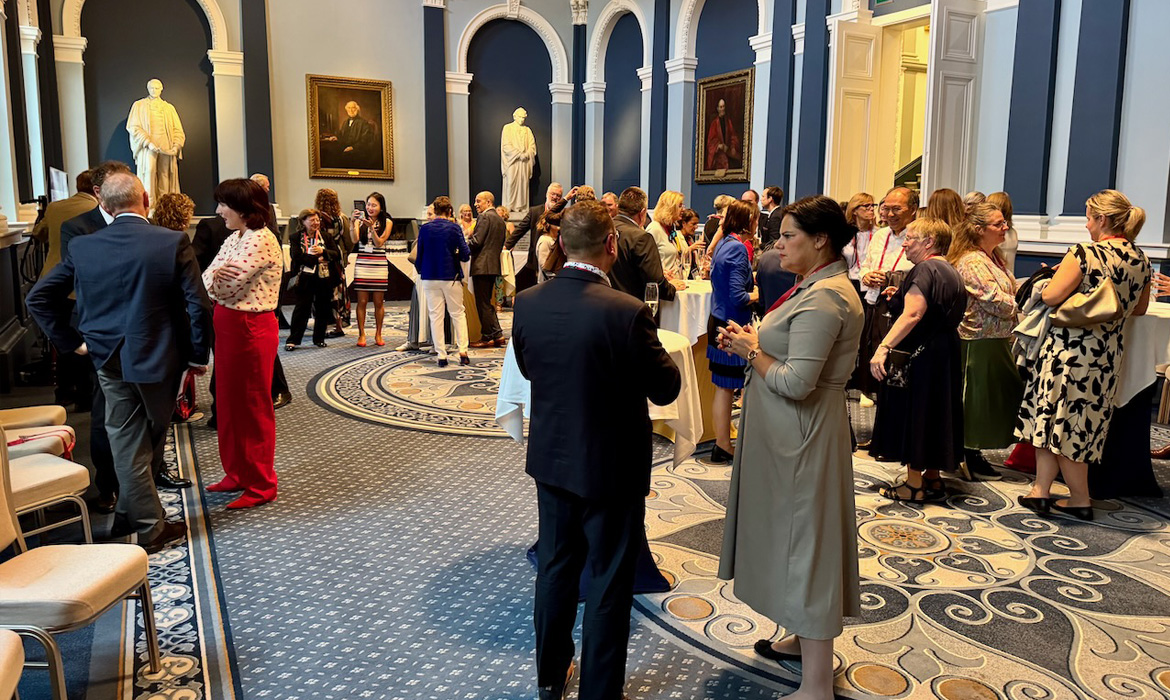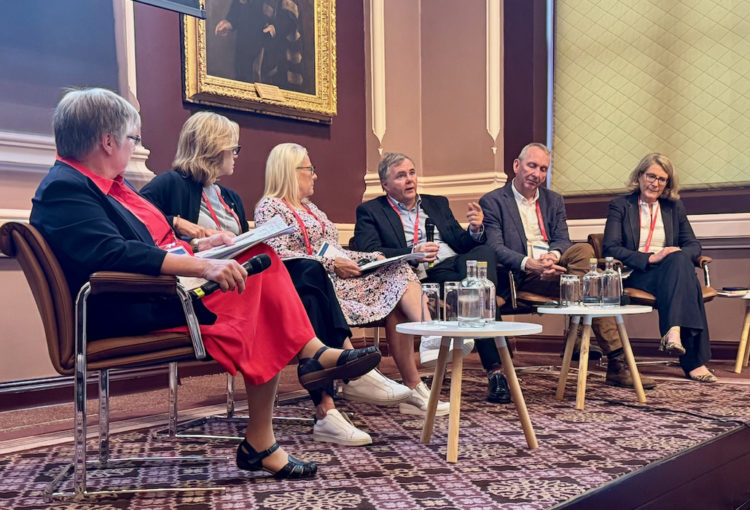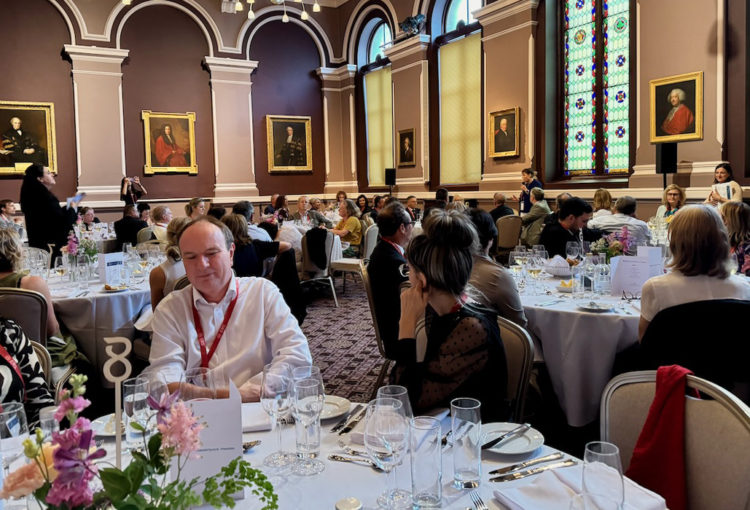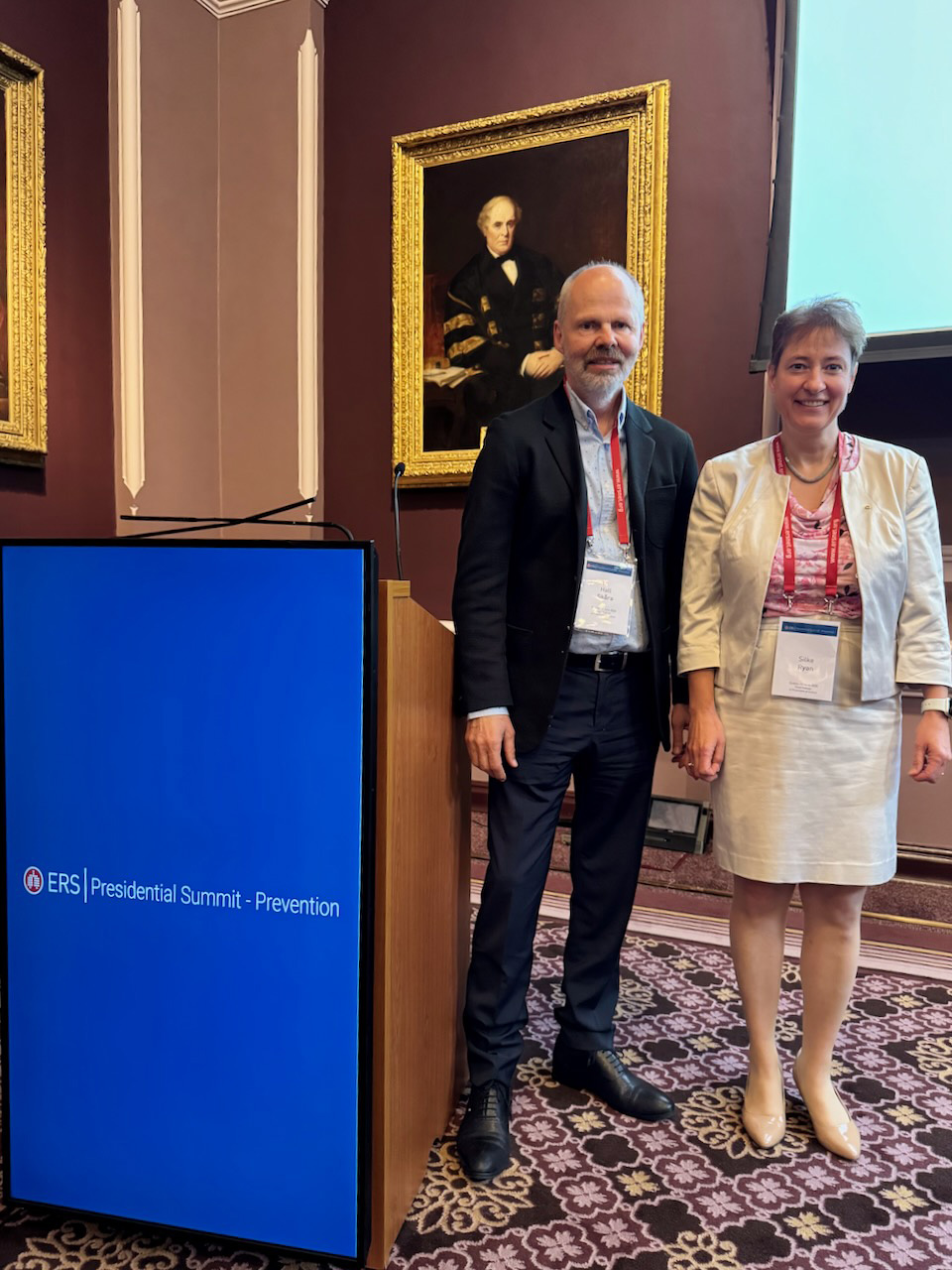ERS Prevention Summit 2025

The ERS Presidential Summit on Prevention, held in Dublin in June 2025, gathered leading voices from medicine, science, policy, and patient advocacy to confront the growing burden of chronic respiratory diseases (CRDs). The venue — the historic Royal College of Physicians of Ireland — proved an apt backdrop: its heritage collection preserves one of the earliest surviving examples of Arthur Leared’s 1851 binaural stethoscope, the world’s first double-eared model.
Prevention in healthcare is commonly framed across three tiers:
- Primary prevention aims to stop disease before it starts by reducing harmful exposures. Examples include smoke-free legislation, clean-air standards, and healthy-food policies.
- Secondary prevention focuses on early detection through screening and case-finding, allowing timely intervention.
- Tertiary prevention seeks to limit disability and extend quality of life once a condition is established.
For conditions such as Pulmonary Hypertension (PH) — which PHA Europe represents — primary prevention is generally not possible. This makes tertiary prevention paramount. Timely diagnosis, advanced therapies, rehabilitation, and environmental measures such as improved air quality can add years of active life, even when a cure is not yet available.
CRD is one of the leading causes of death, disability, and healthcare utilization worldwide. In EU countries, 81.7 million people live with CRD, giving it a prevalence of 9.1%. In 2021 alone, 6.8 million new cases were reported. Despite these facts, only 0.5% of the EU4Health programme’s funding is allocated to CRD. This is especially concerning when most of these diseases are preventable — and when every euro invested in preventive healthcare can yield up to fourteen euros in economic return.
Speakers across the summit emphasized that effective prevention must be embedded in the fabric of society. Professor Barbara Hoffmann contrasted “high-agency” actions (like gym classes or smoking cessation programmes) with “low-agency” structural changes (like iodine in salt or smoke-free public spaces), noting that the most equitable interventions require minimal individual effort. Breaking down entrenched silos between health, urban planning, transport, and education emerged as a key theme; only cross-sector collaboration can shape environments where the healthy choice becomes the easy choice.
Ireland’s own experience provided powerful examples of secondary prevention. Dr Patricia Fitzpatrick highlighted the 2004 national smoking ban, the national cystic fibrosis newborn screening programme, pilot initiatives on RSV and lung cancer screening, and efforts to boost influenza vaccination uptake among healthcare professionals. European efforts such as JARED for rare diseases and ELF’s “Healthy Lungs for Life” campaign showcased how coordinated awareness and screening can begin in schools and extend into primary care.
Patient testimony provided a human face to the statistics. In a moving session chaired by Helen Parks and Professor Hilary Pinnock, individuals living with asthma, COPD, and PH shared experiences of balancing multiple conditions, seeking rehabilitation, and navigating social support. These stories served as powerful reminders that tertiary care and self-management strategies are vital to realizing the promise of prevention.
A joint ERS–WHO report, released during the summit, mapped stark inequities in COPD and asthma care across 53 countries and called for integrated, data-driven health system reforms. WHO envoy José Luis Castro and past ERS President Anita Simonds stressed that universal access to diagnostics (such as spirometry), equitable distribution of new therapies, and continued investment in primary care are non-negotiable for Europe’s respiratory future.
By the summit’s close, a clear consensus had emerged: whether through cleaner air, smarter screening, or optimal lifelong management of chronic conditions such as Pulmonary Hypertension, prevention is everyone’s business. Dublin’s gathering — echoing with the legacy of the stethoscope — challenged Europe to listen carefully and act decisively so that lung health becomes a right, not a privilege.
Hall Skaara
Project Manager PHA Europe
Oslo June 23rd, 2025





